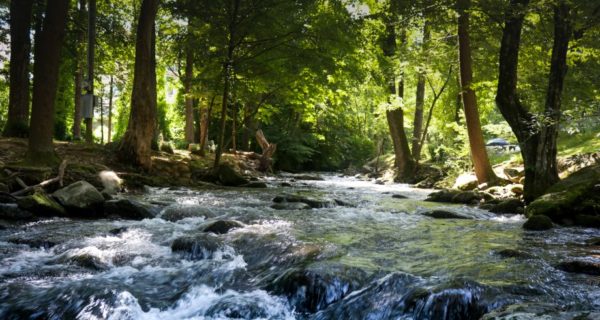In Maryland there’s a suburban neighborhood with a street on it named Fairfield. That’s where I grew up, in 727. It’s a rancher style house made of pink brick, with dark blue shutters on the windows. It was my grandparents’ house before my dad bought it from them, and my grandmother had put flowerbeds everywhere.
I loved our yard. I used to walk about it in the spring, smelling the flowers and watching hummingbirds or hummingbird moths. There were lots of trees, too. Tall pine trees that had been Christmas Trees in years past crowned the hill that led up to the highway in the back, and bordered the left side of our property, and there was a huge maple tree at the end of the long driveway that sloped down into the backyard.
It was always a wilderness for me. Sometimes I watched moles come out from underneath piles of leaves and eat ants off rocks. Sometimes I would roll birdseed down into mouse holes and wait for the shy creature come and claim it. I used to feed the squirrels and chipmunks, too; my parents liked that better than feeding the mice.
In the back left corner, at the base of the hill which supported the highway, a creek emerged from a low tunnel under our neighbor’s yard. For ten or fifteen feet it was out in the open before plunging into another tunnel beneath the highway. I think the creek was natural originally, but by the time I lived there it had been forced into a man-made structure—at least on my side of the highway.
I rarely dream of 727. I almost never see the inside of the house, where I played so rambunctiously with my six siblings. Sometimes I see the hedge that separated our yard from the neighbor’s and that was all yellow with flowers in the spring. Sometimes in dreams I hide in the tangled growth beneath and around the pines on the hill, or in the ditch at its base that led to the creek. But if I dream of my childhood home, I usually dream of that creek. Sometimes it’s misplaced and at the end of a mysterious hallway. Sometimes it’s full of aliens, or populated by ghosts of varying temperaments. I dream of it.
On the days where I had visited it in my play, I often went to bed feeling as if I had left something behind. Footprints, I told myself. I left nothing but footprints and a few rock structures. I didn’t leave behind my shoes, or my hair tie, or any toys or stick-swords or shields. I left only footprints.
But perhaps I really left my dreams there. Perhaps Peter Pan was hiding in the tunnel that led to the other side of the highway, and syphoning out the wishes and dreams of my heart. They were little pieces of me, and easily he hid them in the cement walls of the tunnels, or beneath the rocks, or set them to sail in the water that flowed through the tunnel to the other side of the highway.
The other side seemed magical. When I was first able to go it was still a cornfield. The creek meandered through it and eventually came close to another neighborhood road. We rarely went that far. We would wade in the water near the tunnel, or walk on the banks, barefoot or in the designated “creek shoes” mother insisted we wear. Because it was a treeless field the sun was always hot on our tanned, childish faces. I went there with my younger brother most often. Once or twice we went without permission and our mother panicked when she couldn’t find us.
It was Neverland. I remember autumn days when I was eleven or twelve, when it was too cold to go through the tunnel or wade in the creek. I would climb a wild apple tree on the hill and stare over the highway at the fields and the woods that surrounded them. Those woods fascinated me. They were like a fantasy realm that I could see but never reach.
Someday I’ll write a book about a girl who finds her way back to that Neverland of her childhood. But as for me, I know they have changed the cornfield, and that the wild flowerbeds in my yard have been pruned. I know that the hill is probably covered in poison ivy—it was heading that way even when I lived there. The creek is probably full of broken glass and trash washed down from the neighborhood streets. The forests on the other side may have been cut down for new housing developments by now, and I’m much less agile when it comes to climbing trees.
I can still close my eyes and go back to the creek, though, feel the chilly water flowing over my feet and around my ankles, breathe the cool, dank air that seeps from the tunnel, and hear the highway nearby. I may never go back. If I can, I’ll find my way up into my maple-tree palace again, where I was an elf queen. Or I’ll tromp through the creek and the tunnel and into the ruined field where Neverland used to be.
But it’s more likely I’ll never go there again. The pieces of me that Peter Pan stole are still transcendentally connected to my subconscious, though. What used to give me that anxious, lost feeling at night now means that I can return to Neverland in my dreams. So I will.
